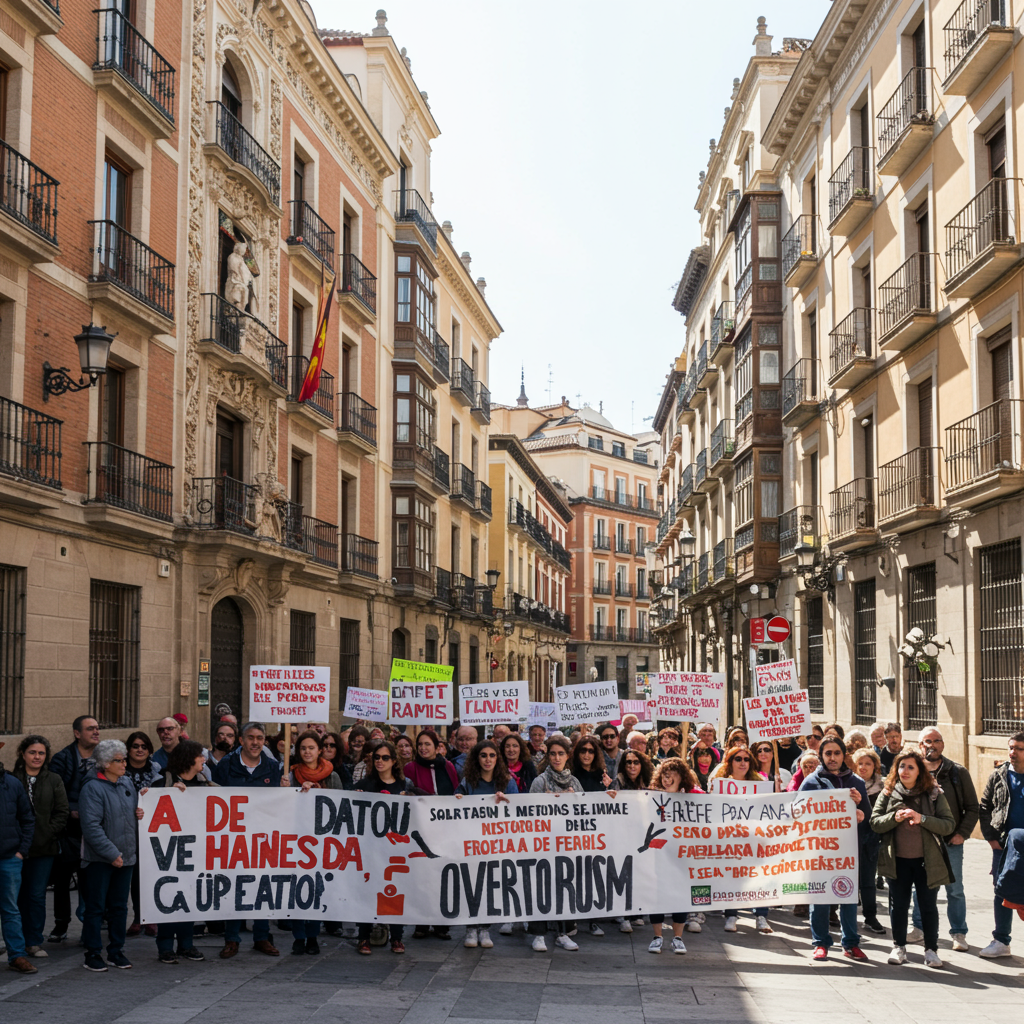Spain’s Overtourism Crisis Sparks Widespread Protests
Residents in Spain’s most popular tourist destinations, alongside activists across southern Europe, are intensifying their fight against the overwhelming impacts of mass tourism. Coordinated protests erupted on Sunday, June 16, 2025, in cities like Barcelona, Palma (Mallorca), Granada, and San Sebastián, as well as in Venice, Italy, and Lisbon, Portugal.
Demonstrators are voicing growing discontent over an economic model heavily reliant on tourism, which they argue is fueling a severe housing crisis, displacing local communities, and eroding the unique character of their hometowns.
The Housing Crunch and Displacement
A central grievance among protesters is the drastic impact of mass tourism on housing affordability. The proliferation of short-term rental platforms, such as Airbnb, is blamed for converting residential properties into tourist accommodation, drastically reducing the housing supply available for long-term residents.
This conversion drives up rents and property prices, effectively pushing locals out of their neighborhoods. In Barcelona, residents like Andreu Martínez report rent increases exceeding 30% as apartments nearby are converted to short-term stays. This displacement is described by some as a systematic process threatening the ability of lifelong residents to remain in their communities. The Balearic island of Mallorca, a favorite for sun-seekers, faces similar skyrocketing housing costs directly linked to the booming short-term rental market. Activists in Venice also highlighted the issue, claiming a recent building project in the historic center displaced the last remaining elderly resident.
Eroding Local Character
Beyond housing, residents feel that the unchecked growth of tourism is altering the social and commercial fabric of their cities. Traditional local businesses are increasingly being replaced by establishments catering solely to tourists – think souvenir shops, fast-food chains, and trendy “bubble tea” spots – further diluting the authentic local culture and community feel.
Protest Tactics: From Signs to Water Pistols
The protests saw thousands gather in Mallorca, with hundreds more participating in other locations. Demonstrators employed a variety of tactics to highlight their message. Marches filled city streets, accompanied by chanting slogans like “Everywhere you look, all you see are tourists,” and the rhythmic banging of pots.
Homemade signs conveyed stark messages, including “One more tourist, one less resident,” the direct “Tourist Go Home,” and poignant pleas like “Your Airbnb was my home.” Some protesters also used stickers featuring similar messages and drawings of water pistols, affixing them to hotels and hostels.
A notable and somewhat confrontational tactic involved using water pistols to spray unsuspecting tourists. While some protesters used them to cool off in the warm weather, others intentionally targeted visitors. One protester in Barcelona described using the squirt guns “to bother the tourists a bit,” framing it as a symbolic act in the “fight to give Barcelona back to its residents.”
Reactions from tourists varied, with some like American visitors Wanda and Bill Dorozenski in Barcelona taking it in stride and even finding the spray refreshing. However, tension was also present, as seen when protesters gathered outside a hostel in Barcelona, leading to an exchange with workers there.
Authorities Grapple with a Balancing Act
Spain, where tourism contributes a significant 12% to the gross domestic product, faces the challenge of addressing resident discontent without harming a vital economic engine. The country welcomed a record 94 million international visitors in 2024, significantly outnumbering its 48 million residents, underscoring the scale of the impact.
Spanish authorities have acknowledged the public outcry and the need to tackle the “unwanted side effects” of mass tourism. Officials have stated that the tourism sector “cannot jeopardize the constitutional rights of the Spanish people,” including their fundamental right to housing and well-being.
In response, measures are being taken. Spain’s government recently ordered Airbnb to remove nearly 66,000 holiday rental listings deemed to be in violation of local regulations. Barcelona has taken the most decisive step, announcing plans to eliminate all 10,000 short-term rental licenses in the city by 2028.
The short-term rental industry, however, feels it is being unfairly targeted. Representatives argue that they are being used as a “scapegoat” for long-standing failures in housing and tourism policy. Yet, for many residents like Barcelona teacher Txema Escorsa, this argument doesn’t resonate. Escorsa has stopped using short-term rental platforms even when traveling, stating that “In the end, you realize that this is taking away housing from people.”
The recent coordinated demonstrations highlight the escalating tensions around overtourism in southern Europe, placing pressure on authorities to prioritize resident well-being and find sustainable solutions for a critical economic sector.




